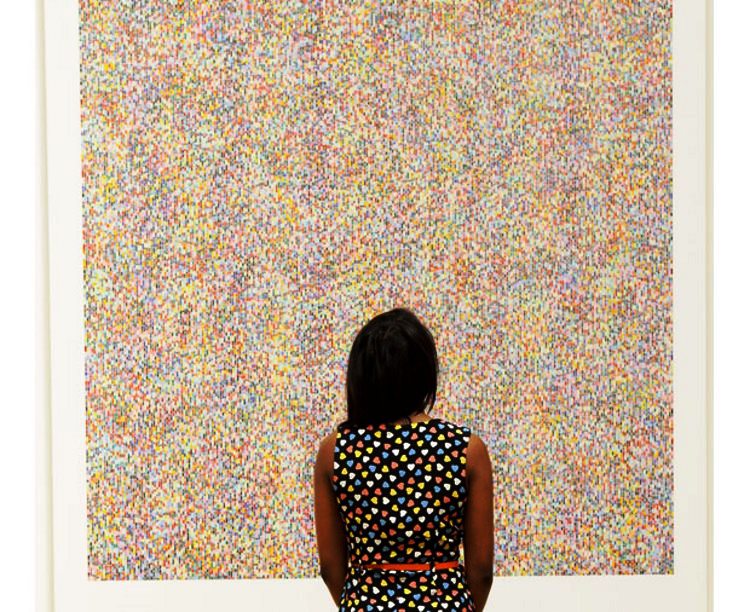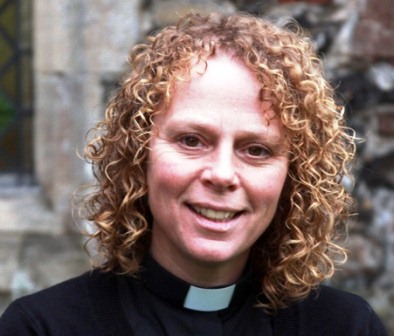James, free will, and God’s love
10th January 2019

Suzanne Cooke, Network Norfolk columnist, has been looking at works of art, and has gained new insight into how much God loves us by giving us free will
I visited an artist recently; you might know him – James Hugonin. His art and the way he works are at the very edges of what some people would consider ‘art’
But being an artist of this kind, even a very successful one – is not without its difficulties: “When are you going to start painting proper pictures?” or something similar, is a phrase that must be more than disheartening to hear
Because these pictures are out of the ordinary, They are what you might call ‘challenging’, they need the onlooker to adopt a different mind-set – there is no right or wrong meaning, no one definitive way of understanding the image
As one commentator put it, his pictures are:
“Something that is moving, and yet something totally still and poised; something where the whole painting is almost alive” (taken from an essay by Michael Collier from the Serious Art website)
James is very passionate about his work, and particularly so when he explained that for him the most exciting aspect was in not really knowing what the picture would become and slowing watching as it emerged from the system he has created - from the process of creation
Does that sound familiar? Is that not a little like our own Christian creation story? That God, in the shape of the Trinity, facilitates the process, created and creates the right conditions for life to exist – and not just exist – to thrive
But let’s go back to the painting for a moment. Remember – the thing that James valued most about the process- the fact that he could not – even if he wanted to or tried – predict or control – where the painting was going to end up
He has created the system, the conditions for the picture to live and from that point forward the painting has a being, a future, a destiny, of its own - almost independent of what James might want for it
And of all the ways James could honour his art, isn’t this the most valuable of all actions – to give something, be it a picture, a person, a child, a community – the tools, the situation, the environment, to exist but to do so in such a way that the object can then become what it would become – not what the creator wants it to be. And arguably – for that autonomy to be the goal
To give something life – to give it form, to bring it into being – but then to set it free. To love it enough, that you can let go of the need to control or determine what it becomes
This is the ultimate loving act – the ultimate ethical act
That you love something enough to give it freedom – to make it free
In the model of creation God gives us the ultimate model of how things might be done – that when we create, we do so in such a way that things are given the tools to become independent of the thing that created them
But just like the process of creating one of James’s paintings we need to think carefully about the systems we go about creating – because our hope is that those conditions enable, nurture, transform
Jesus tells us he is The Way, the Truth and the life – and at its heart Jesus’ way could simply be said to be the way of love. And if we follow that way, the way of the gospel – the way of Love – and for that fundamentally to be our aim, our destination, we surely will not go far wrong

Suzanne is now vicar of four rural churches, sitting at the foot of the Cheviot Hills in the far north of Northumberland. Her call to ministry came whilst living with her family in North Norfolk and is proud to have begun her ordained life in the Norwich Diocese
The views carried here are those of the author, not of Network Yarmouth, and are intended to stimulate constructive and good-natured debate between website users
Click here to read our forum and comment posting guidelines
|